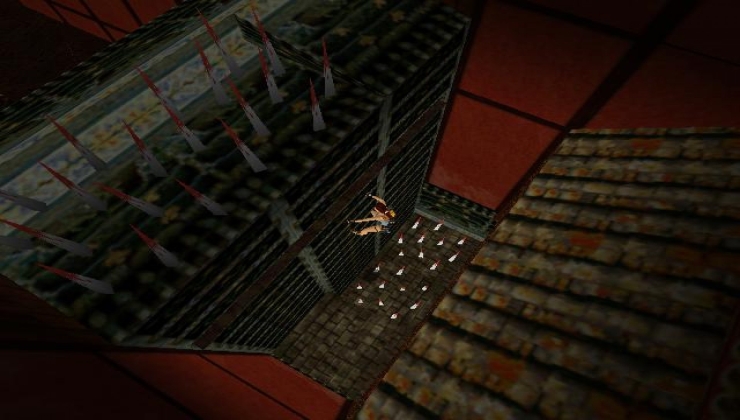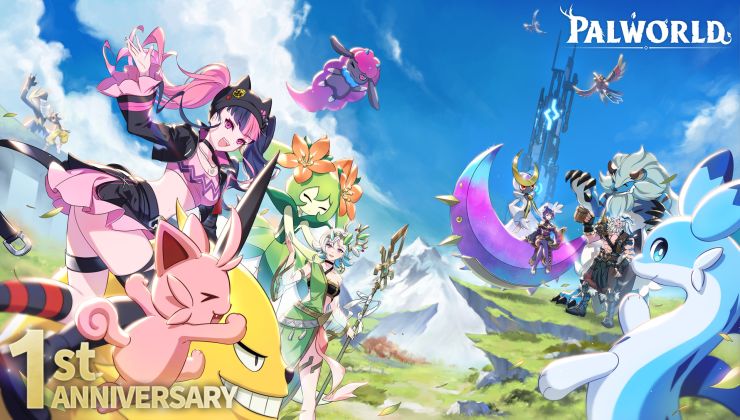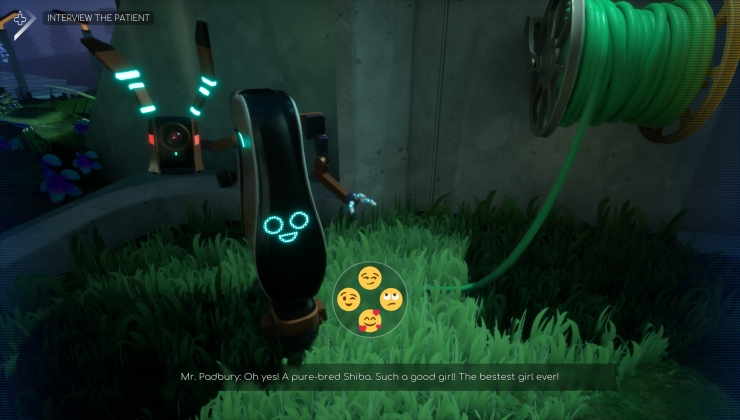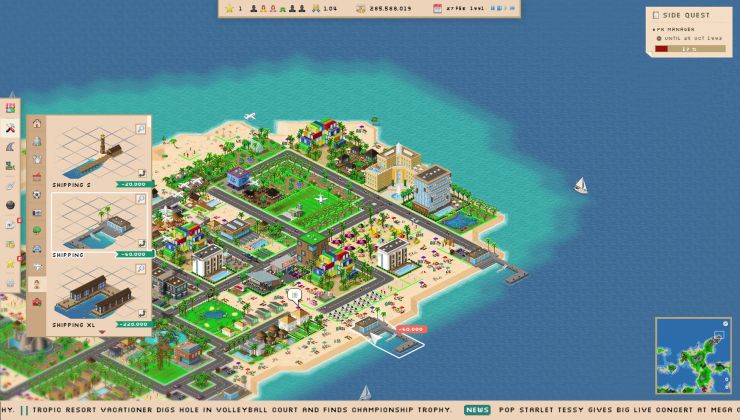Game developer Atlus, who make the popular Persona series have issued a DMCA take-down against the developers of popular PS3 emulator RPCS3.

From what Atlus put out publicly:
You might have heard earlier today that we issued a DMCA takedown notice involving emulation developer group RPCS3 and their Patreon page. Yes, it’s true.
They continued on, noting that they want their fans to get the best experience possible. It's a fair point, but this is likely the wrong way to go about it.
Essentially, Atlus are annoyed that people are emulating their games, like Persona 5. So they moved to contact Patreon directly to request they take down the Patreon pages of RPCS3 developers. This is without Atlus first getting in touch with those developers, which is a pretty blunt and nasty tactic in my opinion.
Thankfully, Patreon themselves have denied the request, given the fact that the Patreon page doesn't actually infringe on anyone's copyrights. As an act of caution, all mentions of Persona 5 from the official RPCS3 site and their Patreon pages have been removed.
The RPCS3 developers have said they don't "promote piracy nor do we allow it under any circumstances" and they've asked everyone to be nice about it.
They confirmed that they will continue to work on RPCS3, as I feel they should.
You can read what happened in the RPCS3 developers own words on reddit here. You can also see the official statement Atlus have put on their own site here.
They continued on, noting that they want their fans to get the best experience possible.
Does that mean they will bring their Games to Linux? ^_^
Last edited by 1xok on 27 Sep 2017 at 9:09 pm UTC
Also, the legality of emulators has been tested in court. Bleem died because of legal fees, but they won their case.
But this has nothing to do with "gaming on Linux". That's just general gaming/piracy news.
You can't stop piracy by blunt force. Torrents and cracks abound and any DRM gets broken eventually.
And several studies have shown that if people cant afford something they will pirate. And if they cannot even pirate they will not buy.
https://gizmodo.com/the-eu-suppressed-a-300-page-study-that-found-piracy-do-1818629537
What they should focus on are grey markets. They harm devs a lot more , but only a few smaller devs woke up to this issue. The big games are still tied to dinosaur publishers and their stone age thinking.
As a former self-admitted pirate , ease of purchase convinced me. Give me a better product , ease of purchase and I will gladly pay for your product. Ship with broken DRM , excessive fees , always online nonsense and well ... the Jolly Roger shall fly my friends. ;)
Last edited by Shmerl on 27 Sep 2017 at 9:07 pm UTC
Happened to youtuber pewpewdiesomething
and now this , just weeks apart
My respect for Patreon went up, while my respect for the developers of Persona went down. I'd heard they were good games, but I'm certainly less likely to buy any now.
Yet recently they are censoring people
The PS3 emulator itself is not infringing on our copyrights and trademarks; however, no version of the P5 game should be playable on this platform; and [the RPCS3] developers are infringing on our IP by making such games playable”
Nope. Wrong. Developers are not infringing the IP by making the game playable, because they did not use any of the IP. They neither use nor distribute the IP of Atlus. Sony, by american law, could probably go after them. Atlus has a almost-to-zero chance in curt.
PR disaster AND massive legal liability? Ooh, heads gonna roll.
That said, I still expect a public apology and material goodwill gesture if they want me to consider the implied PC release.
1. Emulating a platform can in some cases be considered a DRM measure: e.g. Apple have made a proprietary OS, on a proprietary architecture. However emulation isn't DRM circumvention. If you know how to emulate it, you probably can reimplement it on a hardware level, you can patent a particular implementation, but thankfully not the API.
2. I find it deeply offensive, that DRM is not only allowed by law, but enforced.
Piracy is itself a solution to a problem: mismatch between rigid pricing, and people's resources. Sometimes piracy (i.e. free redistribution of paid content sans DRM), is a means of satisfying the FSF needs and rights of humans. (Albeit, I'd say, it's always better to use GNU vi or GNU emacs over a pirated version of sublime text).
A solution? Follow the GNU Guidelines, and set flexible pricing. I find the pay-what-you-want model, paired with transparent development is an effective means of making money. You will get a lot more, because people that would have formerly pirated the thing, will now pay a little something (which is a lot, considering the number of leeches from the pirate bay).
DRM, ain't a solution, it is a problem, in that it's another incentive to pirate stuff. E.g. Assassin's Creed 2's ingenious plan to make the pirated copy seem superior, even to people who've bought the game.
I would say, that a major victory for FSF would be the repeal of DMCA. Not because I want to pirate photoshop, or games, but because I want to be able to defend my 3 rights. The DMCA, is the complete antithesis of Free as in free speech software, in legal form.
They are not supposed to profit from it, but they are with Patreon.And why shouldn't they be able to fund their project? Like Shmerl said, Emulation and software reverse engineering are completely legal in the free world. Might be a grey area in the corporate states of America, but what isn't?
(Albeit, I'd say, it's always better to use GNU vi or GNU emacs over a pirated version of sublime text).It's GNU or nothing? :) Who would even pirate (or buy) a text/code editor when there are so many excellent free alternatives around.
Yet recently they are censoring peopleTheir platform, they choose the rules. I'm assuming you refer to the racist, homophobic reporter lady who made noise about getting her account closed, but they've closed other accounts as well. Not allowing hate speech or using patreon to collect funds for such is just good business, and their prerogative. As I said, their platform.
2. I find it deeply offensive, that DRM is not only allowed by law, but enforced.
Piracy is itself a solution to a problem: mismatch between rigid pricing, and people's resources. Sometimes piracy (i.e. free redistribution of paid content sans DRM), is a means of satisfying the FSF needs and rights of humans. (Albeit, I'd say, it's always better to use GNU vi or GNU emacs over a pirated version of sublime text).
A solution? Follow the GNU Guidelines, and set flexible pricing. I find the pay-what-you-want model, paired with transparent development is an effective means of making money. You will get a lot more, because people that would have formerly pirated the thing, will now pay a little something (which is a lot, considering the number of leeches from the pirate bay).
Respectfully I disagree; DRM is crap and should go the way of the Dodo that we can both agree on. However the rest is horseshit, just because you feel someone is overpricing their work doesnt give someone any "right" to pirate the stuff. As for a 'pay what you want model' its unfeasible, yes idealised people will pay a fair price but since when do we live in a idealised world and its no basis for someone to be able to live by, a completely uncertain return for your effort. Gaming and software is not a right no matter how you want to frame it, people may enjoy it and they are certainly entitled to do so, but if something is beyond your means then either wait for a sale or do without, the I must have now attitude is the problem as much as anything else.
And as you point out there are plenty of software that is produced open and free, if you have a need for a certain software and the choice is between pirating a comercial S/W or using the Free version and your criteria is how much you want to fork out, then the free s/w is the way to go. Does the free s/w miss a feature you want/need then either stump up and pay or help the free s/w implement your needed feature.
I can certainly understand them, piracy is a real problem and they want to do something about it, but that's not the way. Actually the whole war on piracy never fixed anything, it most probably made it worse, as long as they can't change the mindset of pirates the problem is never going to go away and this is not helping.
well.. actually, an EU report stated that piracy isn't a problem at all:
https://thenextweb.com/eu/2017/09/21/eu-paid-report-concluded-piracy-isnt-harmful-tried-hide-findings/#.tnw_f90lLQ56
On the contrary, in the case of video games, the study found the opposite link, indicating a positive influence of illegal game downloads on legal sales.
so as for video games: long live piracy!
As for a 'pay what you want model' its unfeasibleCitation needed, as they say.













 How to set, change and reset your SteamOS / Steam Deck desktop sudo password
How to set, change and reset your SteamOS / Steam Deck desktop sudo password How to set up Decky Loader on Steam Deck / SteamOS for easy plugins
How to set up Decky Loader on Steam Deck / SteamOS for easy plugins
See more from me